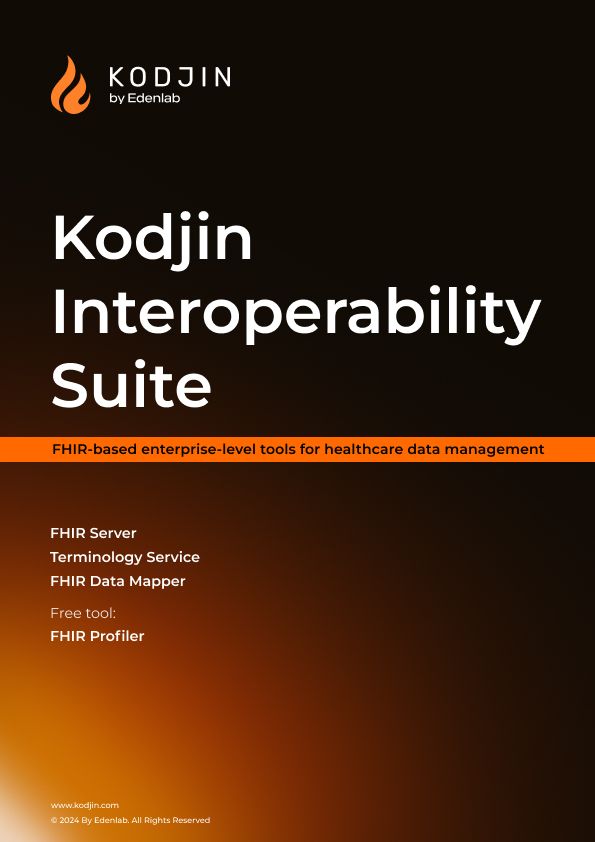The global artificial intelligence (AI) in healthcare market is projected to grow from $20.65 billion in 2023 to $187.95 billion in 2030. While this forecast might excite AI solutions developers and investors, the authorities might not follow market growth to design regulations to protect sensitive data in healthcare while deploying AI solutions.
In this article, we will explore the impact of artificial intelligence in healthcare and suggest the essential steps required to advance AI in healthcare and ensure the effective and ethical utilization of AI in the healthcare industry. By tackling these challenges head-on, we can fully harness the potential of AI while upholding the highest data security and privacy standards.
AI Advancements in Healthcare
Due to AI breakthroughs in healthcare, advanced AI healthcare technology has emerged, driving significant changes in the medical field. By leveraging data-driven insights, healthcare professionals can make more accurate diagnoses, create personalized treatment plans, and monitor patient progress in real time.
This cutting-edge technology has the power to enable more effective care delivery and improve patient experiences. Let’s explore the transformative capacity of AI in healthcare and some evidence-based examples that demonstrate its potential impact.
Personalized Diagnoses and Treatment Plans
AI in healthcare enables personalized interventions that consider an individual’s unique characteristics and medical history. By analyzing vast amounts of patient data, AI algorithms can identify patterns, detect early signs of diseases, and provide accurate diagnoses.
For instance, a study called “Man Against Machine” demonstrated the effectiveness of AI in diagnosing and classifying skin cancer with a performance comparable to dermatologists. The study utilized a deep learning algorithm that analyzed images of skin lesions, achieving high accuracy rates in identifying malignant melanomas.
Tailored Treatment Plans
In addition to diagnoses, AI is crucial in creating tailored treatment plans. By leveraging patient-specific data, AI algorithms can recommend the most suitable treatment options based on genetic profiles, medical history, and response to previous therapies. This approach allows healthcare providers to optimize treatment decisions and improve patient outcomes.
A notable example is the use of AI in cancer care. Researchers at Memorial Sloan Kettering Cancer Center developed an AI-based system called Oncology Expert Advisor (OEA), which provides treatment recommendations based on a patient’s clinical data, treatment guidelines, and research evidence. The OEA system demonstrated significant potential in improving treatment decisions and outcomes for cancer patients.
The study found that OEA accurately extracted clinical concepts from unstructured text documents within electronic medical records. It demonstrated the ability to suggest approved therapy options linked to supporting evidence and screen for eligible clinical trials with high recall and precision rates.
Real-time Monitoring and Care Delivery: AI technology enables real-time patient monitoring, facilitating timely interventions and personalized care. Through wearable devices and remote monitoring systems, healthcare providers can collect and analyze continuous patient data streams, detecting changes in vital signs, medication adherence, and overall health status. This proactive approach allows healthcare professionals to intervene promptly, preventing adverse events and optimizing treatment effectiveness.
For example, a study of a mobile health monitoring-and-treatment system based on integrating the SSN sensor ontology and the HL7 FHIR standard proposed a mobile health framework with an integrated clinical decision support system (CDSS) for monitoring and managing type 1 diabetes mellitus. The system utilizes real-time sensor data and historical electronic health record (EHR) data to provide patients with personalized and medically intuitive care plans for patients.
The CDSS supports real-time patient monitoring, including insulin adjustments, carbohydrate calculations, and exercise recommendations based on vital signs collected from patients’ wireless body-area networks. The system incorporates ontology and medical standards, such as HL7 FHIR, SSN ontology, BFO 2.0, and clinical practice guidelines, to ensure semantic interoperability and comprehensive data analysis. The resulting CDSS system enhances physicians’ efficiency in monitoring patients and empowers patients, particularly in rural areas, to manage their diabetes and emergencies effectively.
Transforming Healthcare with AI While Solving Regulative Issues of AI in Healthcare
Given the projected growth of AI’s market size in healthcare, there is a pressing need to establish appropriate regulations that can effectively govern the implementation and deployment of AI systems in healthcare settings.

These regulations should encompass factors such as AI algorithm transparency, validation processes, and post-market surveillance to ensure that AI-driven healthcare solutions meet the necessary safety standards and address regulative issues in healthcare.
Privacy Concerns
AI systems rely heavily on vast patient data to generate accurate and meaningful insights. However, this reliance raises significant privacy concerns. Healthcare providers must adhere to strict data protection regulations (e.g., HIPAA) to safeguard patient confidentiality.
AI applications must comply with these regulations, ensuring patient data remains secure and protected throughout the data lifecycle, including collection, storage, processing, and sharing. Implementing robust security measures, such as encryption, access controls, and anonymization techniques, becomes crucial to mitigate potential breaches or unauthorized access to sensitive healthcare data.
Deployment Challenges of AI in Healthcare
Interoperability issue
Interoperability is a critical challenge that needs to be addressed to successfully deploy artificial intelligence (AI) solutions in healthcare. It refers to the ability of AI systems to seamlessly operate and deliver consistent results across various healthcare settings, regardless of the differences in data sources, formats, or health IT infrastructure.
A key requirement for achieving interoperability is the establishment of well-defined and standardized datasets. Unfortunately, the lack of data standardization in current research and clinical practices poses significant obstacles to the scalability and reproducibility of AI models. Without standardized datasets, it becomes challenging to validate AI solutions in different cohorts or effectively apply them in real-life scenarios across diverse care settings.
Data coupling
Data coupling occurs when AI solutions are tightly integrated with specific databases, file systems, or data streams. This integration creates a dependency where any changes to the underlying data infrastructure can harm the functionality of AI systems. Consequently, this limitation hampers the widespread adoption of AI in clinical practice.
FHIR: the Out-of-the-box Solution for Regulative and Data Quality Issues in Healthcare
Successfully deploying AI in healthcare relies heavily on the quality, accessibility, and interoperability of health data. By leveraging the international health data standard, HL7 FHIR, organizations can overcome the challenges associated with data coupling and unlock the full potential of AI in healthcare.
Achieving interoperability
Building AI solutions that can be applied across different healthcare settings requires addressing interoperability. AI models are typically developed using specific datasets extracted from clinical settings, but for widespread validation and real-life implementation, these datasets must be well-defined syntactically and semantically. However, achieving this level of data standardization can be challenging due to the lack of uniform practices in research and clinical settings.
To address this, organizations are turning to HL7 FHIR as a common health data model, enabling seamless integration of AI solutions across diverse care settings. FHIR enables seamless data exchange and consistent results across diverse healthcare settings.
Defining a common data model
Data coupling poses a significant obstacle to the reusability and scalability of AI models in healthcare. When AI solutions are tightly integrated with specific databases, file systems, or data streams, any changes to the underlying data infrastructure can disrupt the functionality of the AI system. This coupling limits the widespread adoption of AI algorithms in clinical practice.
To overcome this challenge and enable healthcare transformation with AI, organizations are developing methodologies and toolsets based on HL7 FHIR, which define a common data model and data interface. By decoupling AI solutions from proprietary data infrastructures, healthcare providers can implement AI systems that are more adaptable and less reliant on specific data sources.
Ensuring regulatory compliance in healthcare
Implementing a HIPAA-compliant FHIR server ensures the secure handling of patient data while fostering interoperability among various healthcare systems. The Kodjin FHIR Server is a powerful tool for processing, validating, and storing healthcare data. If you need a solution for managing vast volumes of data in an FHIR-first manner and ensuring the best quality of healthcare data for the effective use of AI in healthcare, do not hesitate to schedule a meeting with our certified FHIR experts.
The HIPAA and ONC-compliant Kodjin FHIR server incorporates robust security measures, such as access controls and anonymization techniques, to safeguard patient confidentiality. Privacy concerns associated with AI systems are effectively managed by ensuring secure healthcare data collection, storage, processing, and sharing.
Takeaway
To ensure artificial intelligence advancements while safeguarding data security and privacy, it is imperative to establish robust regulations and address the challenges associated with deployment. The team of professionals at Edenlab knows exactly how to deal with the intricacies of healthcare data to ensure the smooth deployment of innovative health IT solutions.





